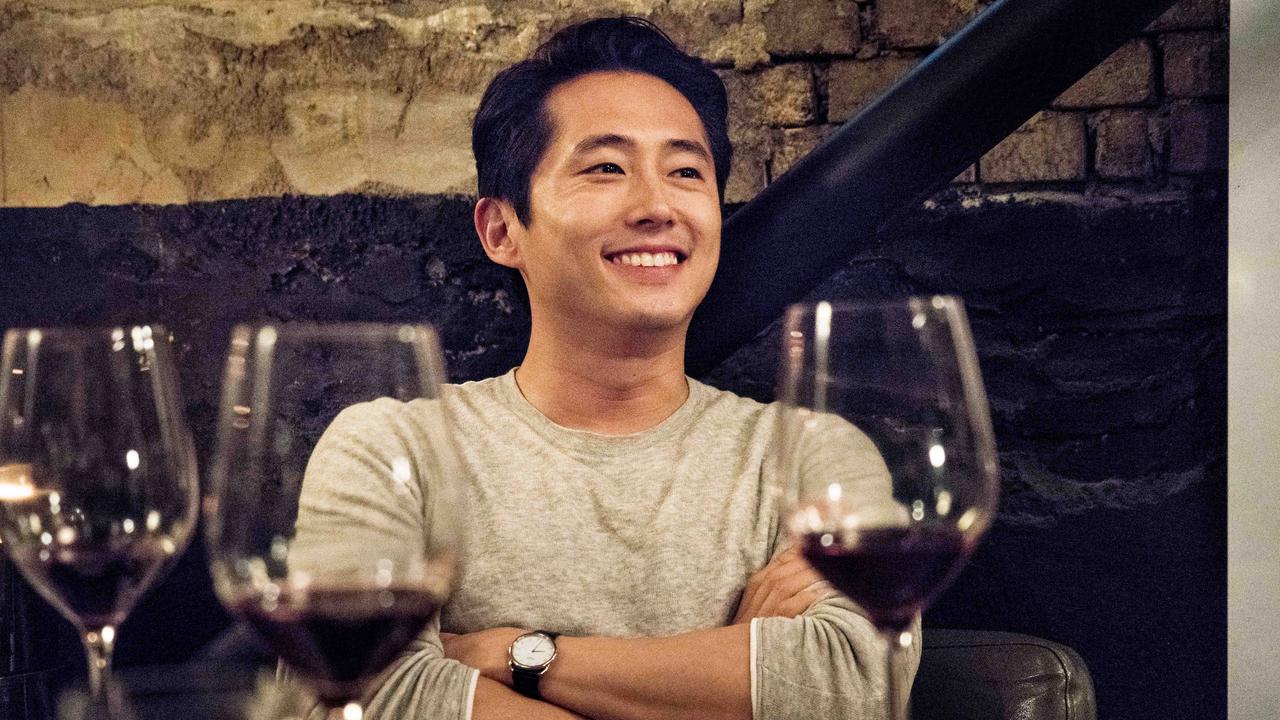Burning: Haunting masterpiece of trauma
This visceral and evocative thriller centred on a love triangle is the one movie you have to seek out this weekend.
A haunting and visceral masterpiece, Burning is the kind of movie that makes you uneasy all the way through.
Adapted from a Haruki Murakami short story, this evocative South Korean movie from acclaimed director Lee Chang-dong (Oasis, Secret Sunshine) is a slow-burn psychological thriller starring Yoo Ah-in, Jeon Jong-seo and American Walking Dead star Steven Yeun.
Lee hypnotises with his story of a love triangle, crafting a movie that could be described as visual poetry, full of beautiful compositions and overflowing with magnetic performances that command your attention.
Jong-su (Yoo An-in) is an aspiring writer from a poor farming family in Paju, near the border of North Korea.
One day, as he’s walking through town, a promo girl outside a store rigs a raffle so he wins the prize, a woman’s wristwatch. She says her name is Hae-mi (Jeon Jong-seo) and that the two went to school together.

Jong-su is enchanted by Hae-mi so when she asks him to feed her cat while she’s on holiday in Africa, he readily agrees. He obliges, and though he never sees her cat, the food is always gone when he returns to her cramped studio.
When Jong-su goes to pick up Hae-mi from the airport, he’s shocked to find her introducing him to Ben (Steven Yuen), an attractive and suave man she met while in Nairobi.
The Ferrari-owning Ben is everything Jong-su is not — rich, confident and now the object of Hae-mi’s affections.
The three of them start hanging out together and it’s clear that Jong-su is the third wheel in this dynamic. They even spend a day at Jong-su’s father’s rural farm, a bleak and worn-down space full of junk, the distillation of a life spent marginalised by a system that only enriches people like Ben and not people like Jong-su and Hae-mi.

Not long afterwards, Jong-su receives a call from Hae-mi which cuts off midway. He becomes concerned when he can’t find her — her phone is eventually disconnected and her apartment is cleaned out.
Jong-su starts stalking Ben, hoping he’ll lead him to Hae-mi.
Burning is far from a rote thriller. Its mystery isn’t fuelled by a compulsion for answers, rather it’s anchored by Jong-su’s mental state.
What at first feels almost feels comparable to The Great Gatsby with Jong-su the writer standing in for Nick Carraway and Ben and enigmatic Hae-mi as Jay and Daisy, soon drops off with the focus shifting to Jong-su’s toxic mix of entitlement, suppressed rage, isolation and vulnerability.
Lee uses a recurring motif of glass, mirrors and reflective surfaces, perhaps to highlight how Jong-su perceives himself as part of the lower strata, or maybe it’s to distance the audience from the character, as if his emotional state is as out of reach to us as it is to him.

The shocking and distressing ending is testament to Lee’s willingness to make audiences uncomfortable and complicit, having spent so much time in Jong-su’s point-of-view — there isn’t always a hero in every story.
While Burning is a specific and intimate story, it also plays in the same space as the best, subtle social dramas with how it tells the story of these three characters and the way they fit into their world. Jong-su’s emotional wounds hint at a wider national trauma.
Burning is a beguiling movie with a languid intensity, stunning and disturbing in equal measures, and well deserving of your time.
Rating: ★★★★½
Burning is in cinemas now
Share your movies and TV obsessions | @wenleima




